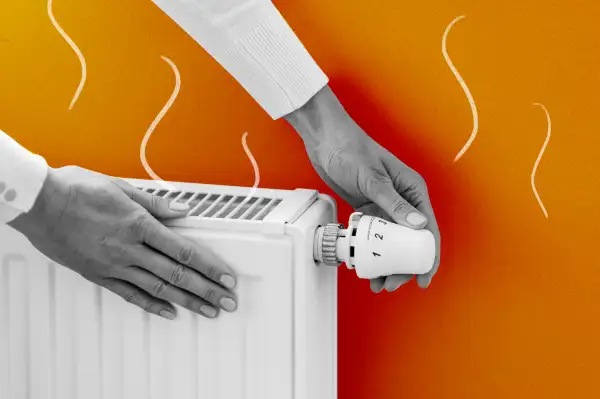5 Ways to Lower Your Heating Bill as Costs Creep up Near Record Highs

Americans will likely spend near record amounts to heat their homes this winter due to still-high energy prices.
The average cost for winter heating in the U.S. is forecasted to be $1,106 this season, which would be just shy of last winter's 10-year high of $1,118, according to a National Energy Assistance Directors Association (NEADA) report.
These levels reflect increases of more than 30% compared to the 2019-2020 winter when the average cost was $847.
Customers who use natural gas, which is the most common type of heating covering 48% of households, could be in for a slight break compared to last winter's heating costs, according to the NEADA.
But prices are expected to rise for all other major types of heating, including electric heating (43% of households), as well as propane and heating oil systems, which account for the remaining 9% of households.
Here’s a breakdown of forecasted heating costs from October 2023 to March 2024:
- Natural gas: $726 (-7.8% from last winter)
- Electricity: $1,374 (+1.2%)
- Heating Oil: $2,275 (+8.7%)
- Propane: $1,538 (+4.2%)
Households that rely on heating oil will face the highest bills this winter as their costs are forecasted to rise due to limited petroleum supply and concern about cuts from Russia and Saudi Arabia, according to the NEADA.
A separate forecast on home heating prices that comes from the federal government is less pessimistic: The Energy Information Administration (EIA) predicts a 21% decrease in natural gas heating costs from last year and a 1% decrease in electric heating prices. However, that report acknowledges that prices will likely be higher if it ends up being a cold winter.
Tips on how to save money on heating bills this winter
Here are some of the things you can do to lower your heating bills as it gets colder:
- Reduce inefficiencies in your home: Keeping warm air in and cold air out will save you money on your heating bill. Don't leave the windows open unnecessarily and consider closing curtains when the sun isn't coming through, to block the chill. Winterizing your home by fixing bad door seals or adding insulation can also make a big difference.
- Maintain your HVAC system: Regardless of which type of heating system you have, it's important to make sure you're getting its full potential. This is a good time of year to check if your filters need to be replaced or if your heating devices need a tune up. Professional HVAC maintenance comes at a cost, but you might save money over the course of the winter.
- Don’t overheat your home: Turn down the temperature on your thermostat when you’re at work or traveling. Also, most people can comfortably sleep at lower temperatures, and programmable thermostats can automatically change the temperature for you at night to save money.
- Compare energy rates and providers: In certain states with deregulated natural gas, customers can shop around for the best rates. The company delivering your gas will most likely stay the same, but you may have options for different suppliers. When you go online or call your utility company, you can also ask if there are any discounts or options you can pursue to lower your bill.
- Explore heating bill assistance: State and local governments often have programs that can provide utility bill assistance to low-income households. There's also a federal energy assistance program administered by states. The website Benefits.gov can guide you to resources in your state.
More from Money:
8 Best Home Warranty Companies of October 2023
More People Are Skipping Home Insurance to Save Money — and It Could Backfire
How to Prepare Your Home for Winter and Lower Your Heating Bills

